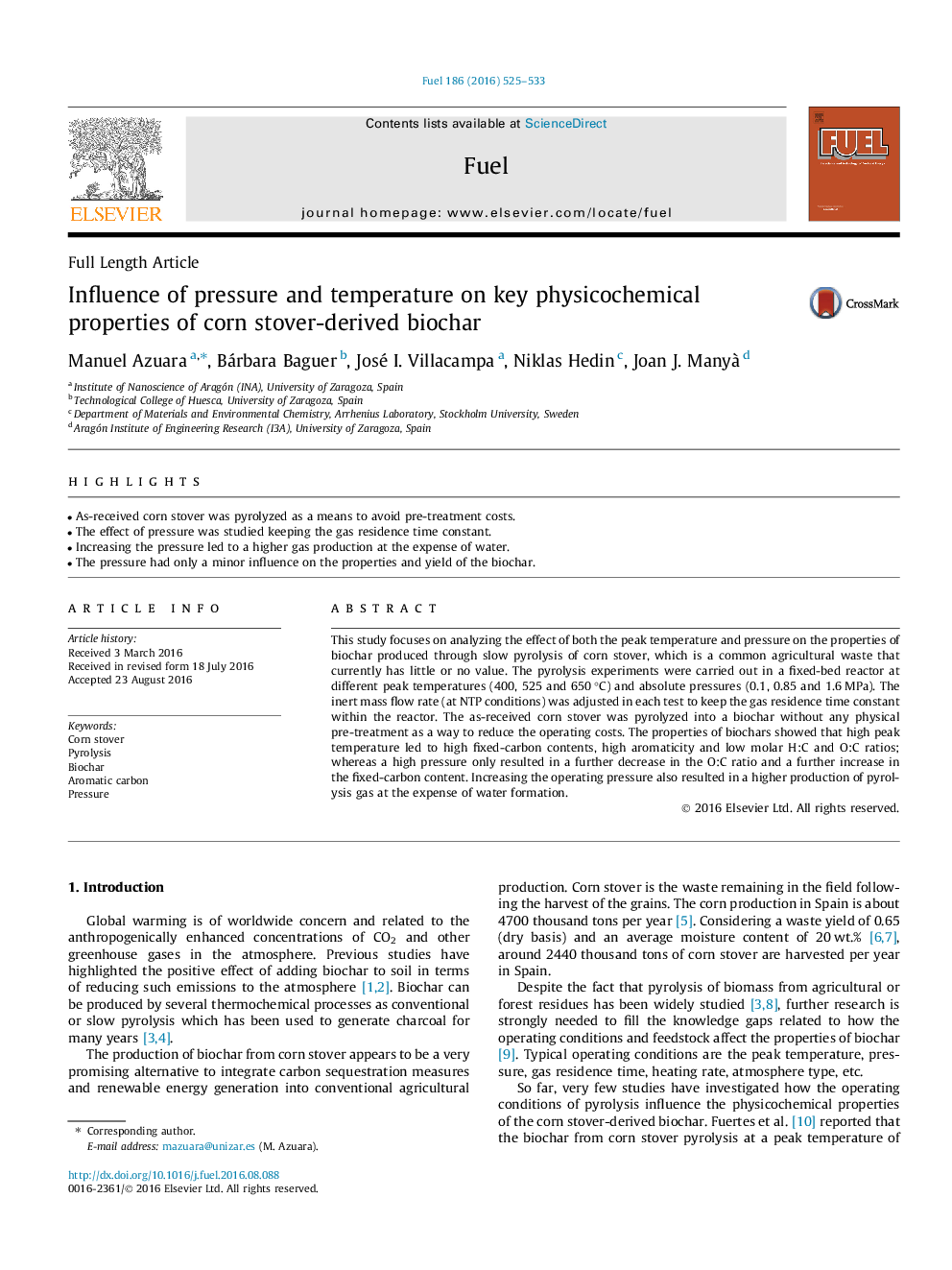| Article ID | Journal | Published Year | Pages | File Type |
|---|---|---|---|---|
| 6476136 | Fuel | 2016 | 9 Pages |
Abstract
This study focuses on analyzing the effect of both the peak temperature and pressure on the properties of biochar produced through slow pyrolysis of corn stover, which is a common agricultural waste that currently has little or no value. The pyrolysis experiments were carried out in a fixed-bed reactor at different peak temperatures (400, 525 and 650 °C) and absolute pressures (0.1, 0.85 and 1.6 MPa). The inert mass flow rate (at NTP conditions) was adjusted in each test to keep the gas residence time constant within the reactor. The as-received corn stover was pyrolyzed into a biochar without any physical pre-treatment as a way to reduce the operating costs. The properties of biochars showed that high peak temperature led to high fixed-carbon contents, high aromaticity and low molar H:C and O:C ratios; whereas a high pressure only resulted in a further decrease in the O:C ratio and a further increase in the fixed-carbon content. Increasing the operating pressure also resulted in a higher production of pyrolysis gas at the expense of water formation.
Related Topics
Physical Sciences and Engineering
Chemical Engineering
Chemical Engineering (General)
Authors
Manuel Azuara, Bárbara Baguer, José I. Villacampa, Niklas Hedin, Joan J. Manyà ,
